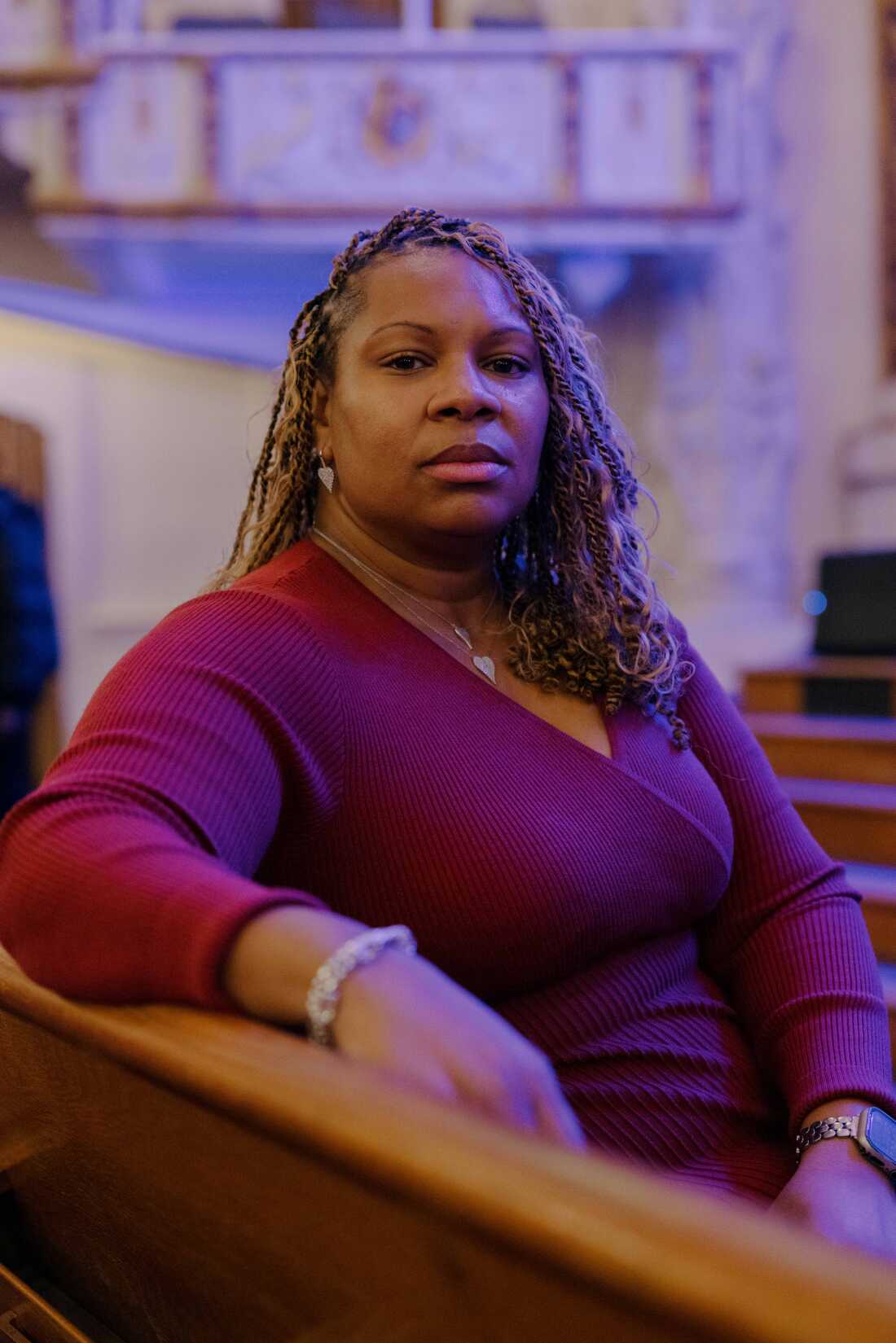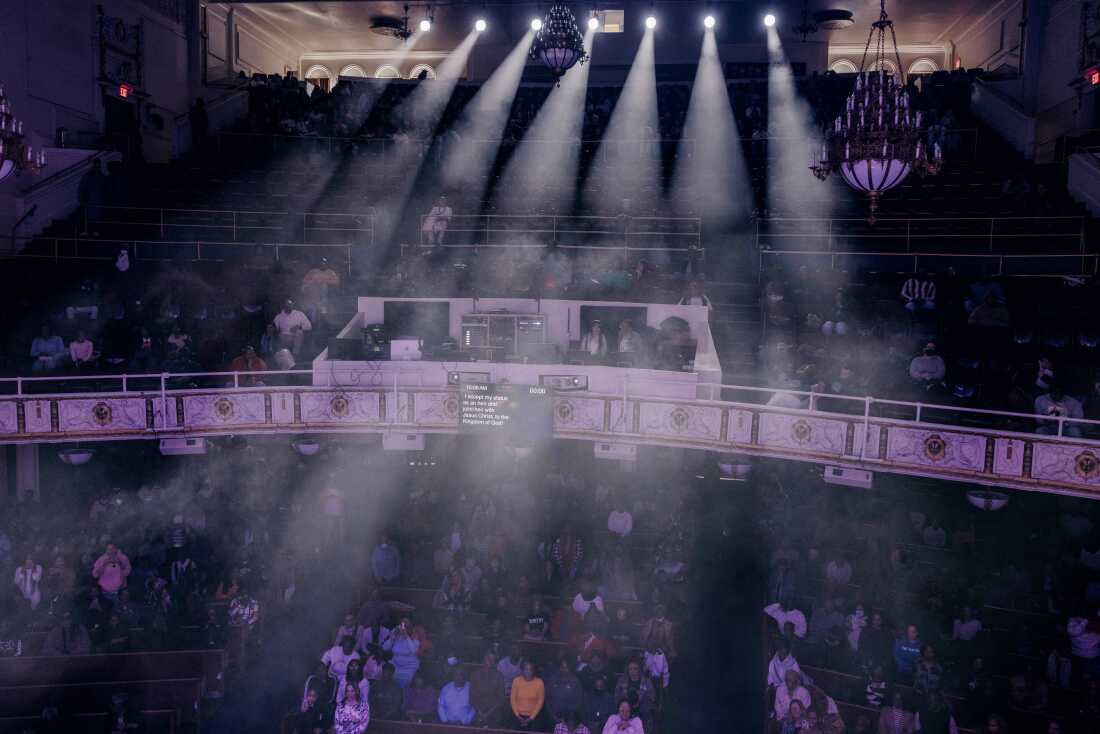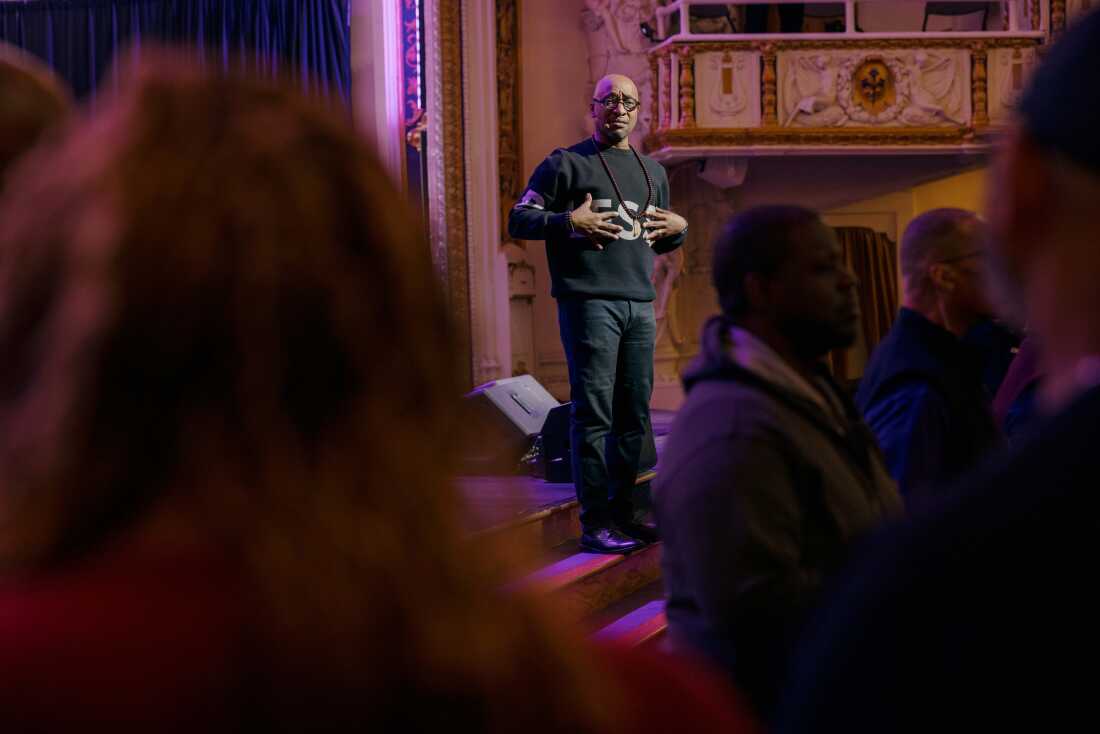
Pastor Michael A. Wallon, who is leading the first Korint Siabaptist in Harlem, New York, says when he was young, mental health was not discussed in his family. He is trying to change it for his congregation.
NPR’s José A. Alvarado Jr.
Hide the caption
Caption toggle
NPR’s José A. Alvarado Jr.
If you or your loved one is in crisis, phone, text or Chat 988 Suicide and crisis life line.
It was his mental health crisis that Michael A. Walrond, JR. helped me to understand and accept mental health care. Walrond recalls: In his late thirties, he had already expanded his life and expanded his congregation in the first baptism of the first Corinthians in Harlem, New York.
His master’s degree in theology was not related to training on clinical mental health care, which was not part of his family life that grew up in New York City. “I also grew up in the Caribbean family,” he said. “It didn’t say it clearly.”

Suicide thoughts (death by suicide) could be a sign of serious mental illness, and Walrond did not realize at the time of dealing with depression and anxiety. Research shows that the clergy are suffering at a high rate. Burnout And often Be struggling With thought about suicide and self -harm. After his suicide, Walrond immediately pursued mental health care.

Church attendees have recently gathered for the recent Sunday morning service at the first Corinthian Siak Baptist Church in Harlem, the historic black of Manhattan, Upper Manhattan, New York.
NPR’s José A. Alvarado Jr.
Hide the caption
Caption toggle
NPR’s José A. Alvarado Jr.
He now recognizes the treatment to save his life.
Walrond wondered how many people in his community suffered in silence. “I think there is a normalization of trauma in the African American community,” he said. “You actually do not affect mental health.”

Today, Walrond is an example with his stigma of his job, community and mental health.
Mental health care to the church

At the first Corinthian Si Baptist Church, the baptism is carried out before Sunday worship.
NPR’s José A. Alvarado Jr.
Hide the caption
Caption toggle
NPR’s José A. Alvarado Jr.
At first, Walrond hired a part-time therapist and worked in First Corinthian. He was in the church and was built with thousands of congregations for more than 20 years, and in a small office where the first therapist worked, “She was in this office.” He hired her in an intuition that people would use her service, but she didn’t expect how much demand would be. He told him, “Pastor -many people are coming.”
Walrond found something else. People are often headed to the office of the therapist and are embarrassed to admit their purpose. He decided to expand to a place where people feel comfortable.

Today, the church operates a separate non -profit organization. Hope Center. We support funds through subsidies and congregation donations. Lena Green, the executive director of the center, turns to the corner of the church and opens the door of the clinic to a separate building. “We currently have seven clinical staff.

Dr. Lena Green, who is a social welfare doctor, instructs the Church’s Hope Center. She and other clinical trials try to reduce the risk of suicide among young people in the community.
NPR’s José A. Alvarado Jr.
Hide the caption
Caption toggle
NPR’s José A. Alvarado Jr.
Green has made progress for several years, but it is still widespread in the community. In recent years, black youth and adolescents are particularly Increasing mental health crisisIncluding suicide thoughts and suicide attempts. Access to this topic can be difficult.
Green said, “There are some kinds of families that they want to call it a conspiracy of silence.” But we know that we must get help. “
Green and Walrond have a unique opportunity to fold clinical health services into the church. It is already a place where people can cause mental pain.

Dr. Lena Green’s nephew, Gabriel Dorvil, recently listened to the Church Choir at the first Corinthian Baptist Church in Harlem.
NPR’s José A. Alvarado Jr.
Hide the caption
Caption toggle
NPR’s José A. Alvarado Jr.
But they are still fighting stigma about the idea of pursuing mental health treatment. Walrond says that asking God for help is the only way to pursue mental welfare. “You can trust God and meet a doctor and get a medicine for high blood pressure,” he says. “Suddenly there is a problem with mental health problems.”
Marchelle Green-Dorvil, the first congregation of the first Corinthians, said, “My generation is a generation of parents. If you are talking with a therapist, you will be broken. I admit that the group is still weak.

The sanctuary of the first Corinthian Siak Baptist Church in Harlem while serving in recent Sunday morning.
NPR’s José A. Alvarado Jr.
Hide the caption
Caption toggle
NPR’s José A. Alvarado Jr.
Nevertheless, she says that the church has always been held on a sacred basis for revealing vulnerability. She said the message of the previous generation said, “If you have sharing, it must be done only in the church environment.” The work of the first baptism of Corinth shows people that the treatment space is safe.
Put suicide publicly
One of Walrond’s strategy is to openly talk about suicide and mental health and dare to do so. This includes his service. He told the congregation a few years ago, “I know the moment when I went to church, left the church and died of suicide.”
People are shaking and crying and holding each other. Walrond encourages congregation members to do courageous work. “People who are tired of life, and you are ready to give up today. I want you to come.” “I want you to make the way today.”
Surprisingly, people headed forward.
Walrond says that when preparing such services, he is looking at the scriptures for guidance elsewhere. “There are many people who want to die because of the weight and expectation of responsibility in the scriptures,” he explains. “Elijah, a prophet, asked God to take his life. Moses asked me to kill God.”

Pastor Michael A. Walrond is listening to the church participants who lead Sunday morning worship at the Corinthian Baptist Church in Harem, New York on Sunday, February 23, 2025.
NPR’s José A. Alvarado Jr.
Hide the caption
Caption toggle
NPR’s José A. Alvarado Jr.
He believes there is no difference between spiritual and physical needs, including mental health. Walrond says, “Some of the responsibilities are to treat people’s needs as holy.”
If you or someone you know is considering suicide or in crisis, phone or text 9-8-8 It reaches suicide and crisis life.









































